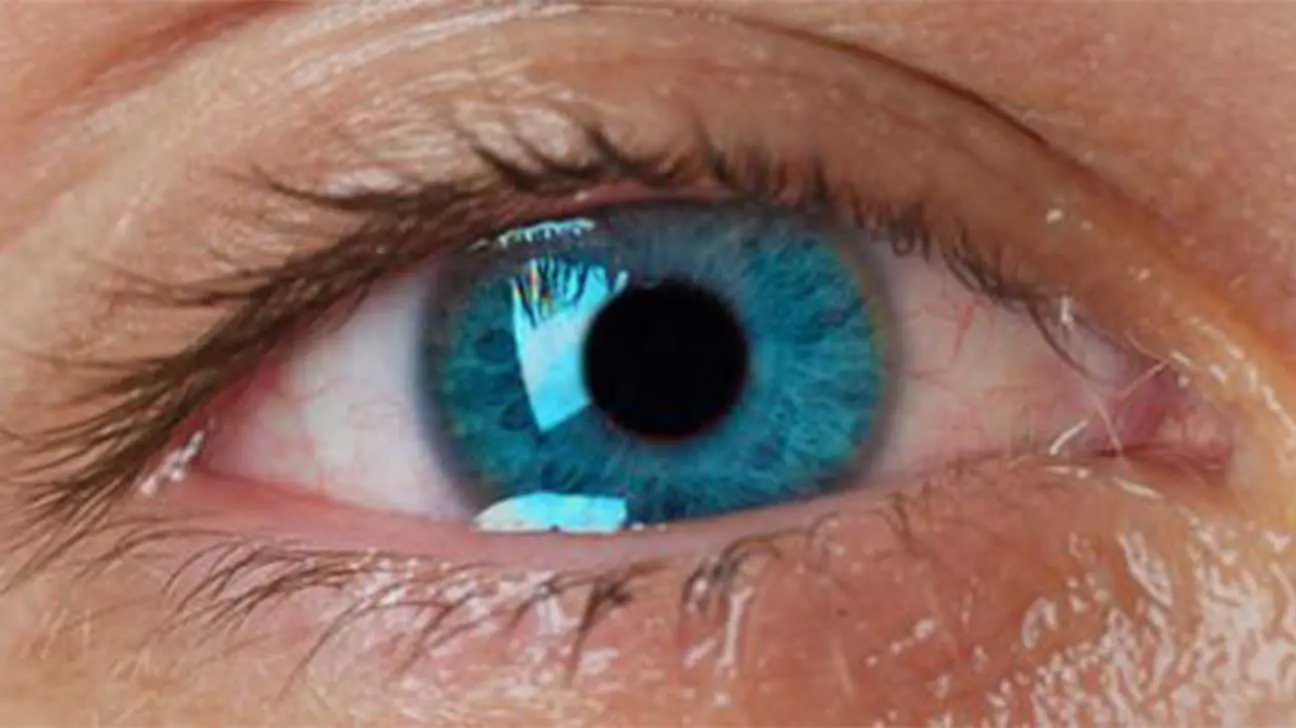
Many drugs, including alcohol, can cause the eyes to glaze over or become glassy. With alcohol, this typically occurs with intoxication or drunkenness.
Physical signs of drinking can be some of the first telltale signs of a drinking problem. Alcohol is the most widely abused substance in the United States. An estimated 14 million adults meet the criteria for an alcohol use disorder in the U.S.
Although some symptoms of drinking, like glassy eyes, can seem generally harmless, this isn’t always the case.
Over time, chronic alcohol abuse may increase the risk of developing glaucoma, vision loss, and involuntary movements of the eyes.
What Causes Glassy Eyes?
Alcohol is a central nervous system (CNS) depressant. The central nervous system, composed of the brain and spinal cord, regulates basic regulatory functions such as blinking.
If you’re blinking less often or blinking very slowly, this can cause the eyes to become dry, which may lead to a glassy appearance. Glassy eyes are a common symptom of intoxication and the use of drugs like marijuana (cannabis).
What Else Can Alcohol Do To Eyesight?
Glassy eyes are only one symptom of alcohol intoxication. Some people who drink may also develop red or bloodshot eyes or experience blurred or double vision.
Alcohol abuse, which refers to a pattern of excessive drinking that is harmful to health, can cause even worse problems.
Chronic alcohol abuse has been linked to a whole host of issues affecting the eyes, as well as virtually every other system in the body.
Visual problems associated with heavy drinking include:
- increased risk of cataracts
- rapid eye movements
- age-related macular degeneration
- glaucoma
Over time, heavy drinking may weaken the muscles in the eyes and impair optic nerves. This can affect eye movement, ability to see color, and potentially cause full or partial vision loss.
Ocular Conditions From Fetal Alcohol Syndrome
Drinking while pregnant is ill-advised, as this may influence the development of a range of physical and behavioral conditions associated with fetal alcohol syndrome.
According to research, people that are born with fetal alcohol syndrome (FAS) may benefit from receiving systematic eye examinations to screen for ocular issues.
Although there isn’t a clear consensus on the association between FAS and vision problems, some research has found optic nerve hypoplasia (underdevelopment of the optic nerve) present in up to 61 percent of people with FAS.
How To Identify Alcohol Abuse
Simply drinking alcohol isn’t a sign of alcohol abuse by itself. Moderate, or acceptable drinking levels, are defined as drinking up to one drink a day for women and up to two for men.
Alcohol abuse can generally be described as drinking in a way that is harmful to physical or mental health, such as drinking excessively or drinking very often to get drunk, self-medicate, or reduce stress.
Signs of alcohol abuse may include:
- heavy drinking
- binge drinking
- drinking during the day
- constantly thinking about alcohol
- being unable to reduce how much you drink
- experiencing alcohol withdrawal
- continuing to drink alcohol despite negative effects on health
How Alcohol Abuse Can Lead To Dependence
People who abuse alcohol can be at risk of becoming alcohol-dependent. Alcohol dependence can make it difficult to stop drinking alcohol.
People who are physically dependent on alcohol may crave alcohol throughout the day and experience symptoms of withdrawal if they go for too long without a drink.
Alcohol abuse and dependence can have a number of effects on the body, including the eyes, and can severely affect a person’s way of life without treatment.
Treatment For Alcohol-Induced Vision Problems
People who are experiencing vision problems as a result of your drinking should talk to their doctor about recommended treatment options. Some vision problems may be reversed or managed with treatment.
If you or someone you know is abusing alcohol, entering an inpatient or outpatient rehab program for substance abuse may also be recommended.
Alcohol rehab programs can offer therapy, medical care, and behavioral support to help address the underlying causes of your drinking and provide supportive coping strategies for a healthier and happier future.
For more information, call our helpline today to learn more about alcohol abuse and how to find alcohol abuse treatment near you.
Addiction Resource aims to provide only the most current, accurate information in regards to addiction and addiction treatment, which means we only reference the most credible sources available.
These include peer-reviewed journals, government entities and academic institutions, and leaders in addiction healthcare and advocacy. Learn more about how we safeguard our content by viewing our editorial policy.
- U.S. National Institute on Alcoholism and Alcohol Abuse (NIAAA)—Drinking Levels Defined
https://www.niaaa.nih.gov/alcohol-health/overview-alcohol-consumption/moderate-binge-drinking - U.S. National Library of Medicine: NCBI—Ocular manifestations of drug and alcohol abuse
https://www.ncbi.nlm.nih.gov/pmc/articles/PMC4545665/


